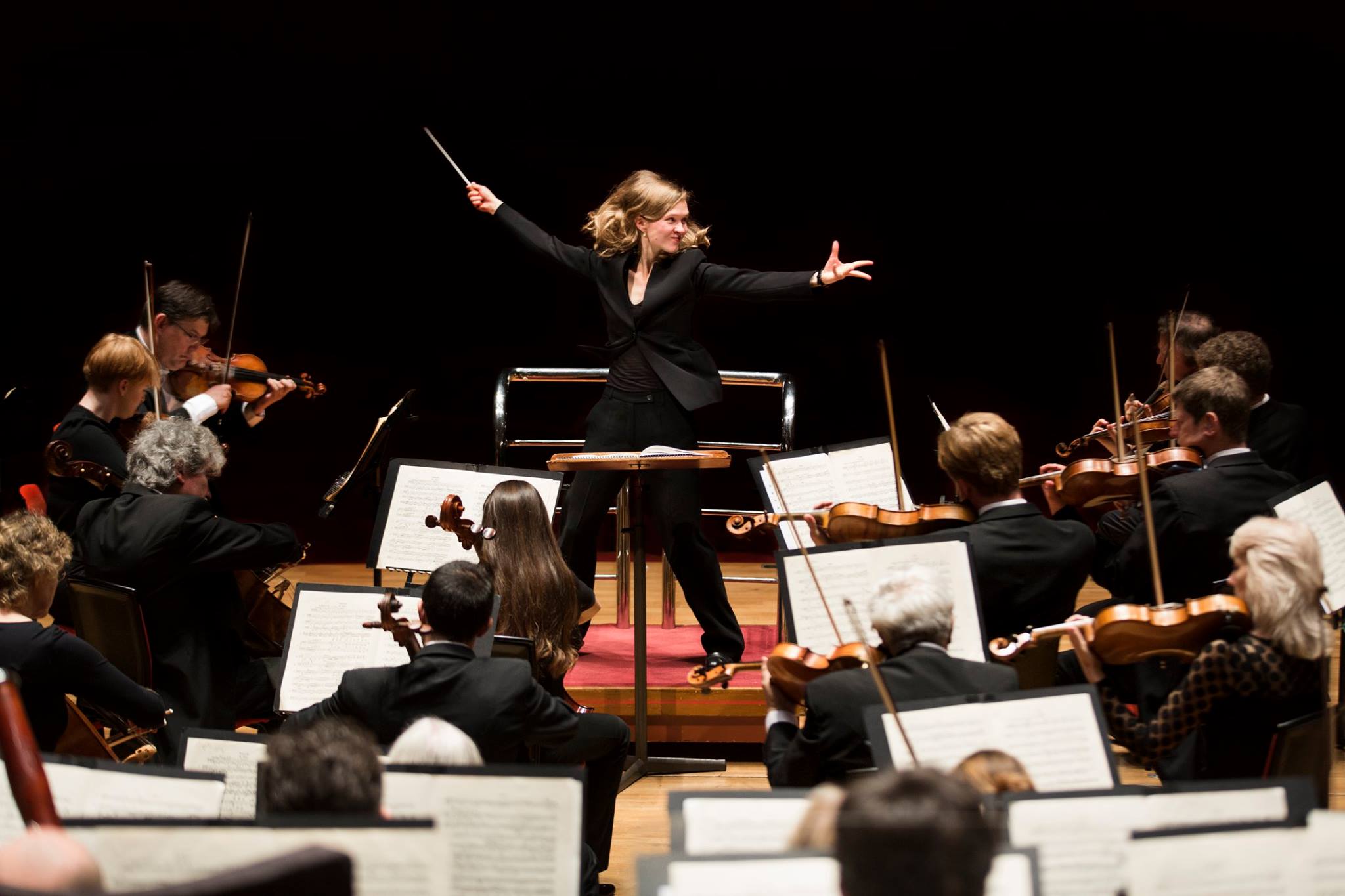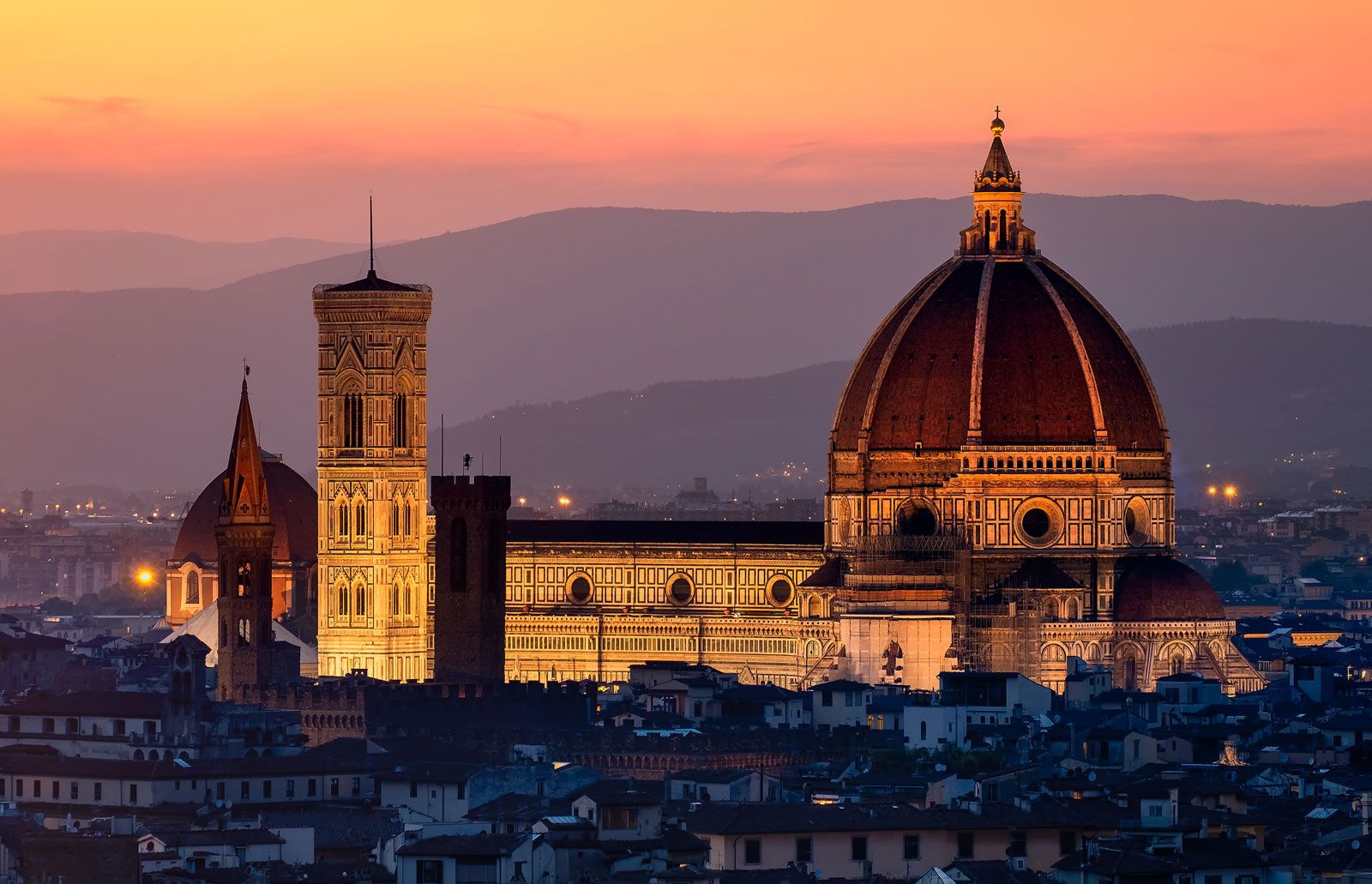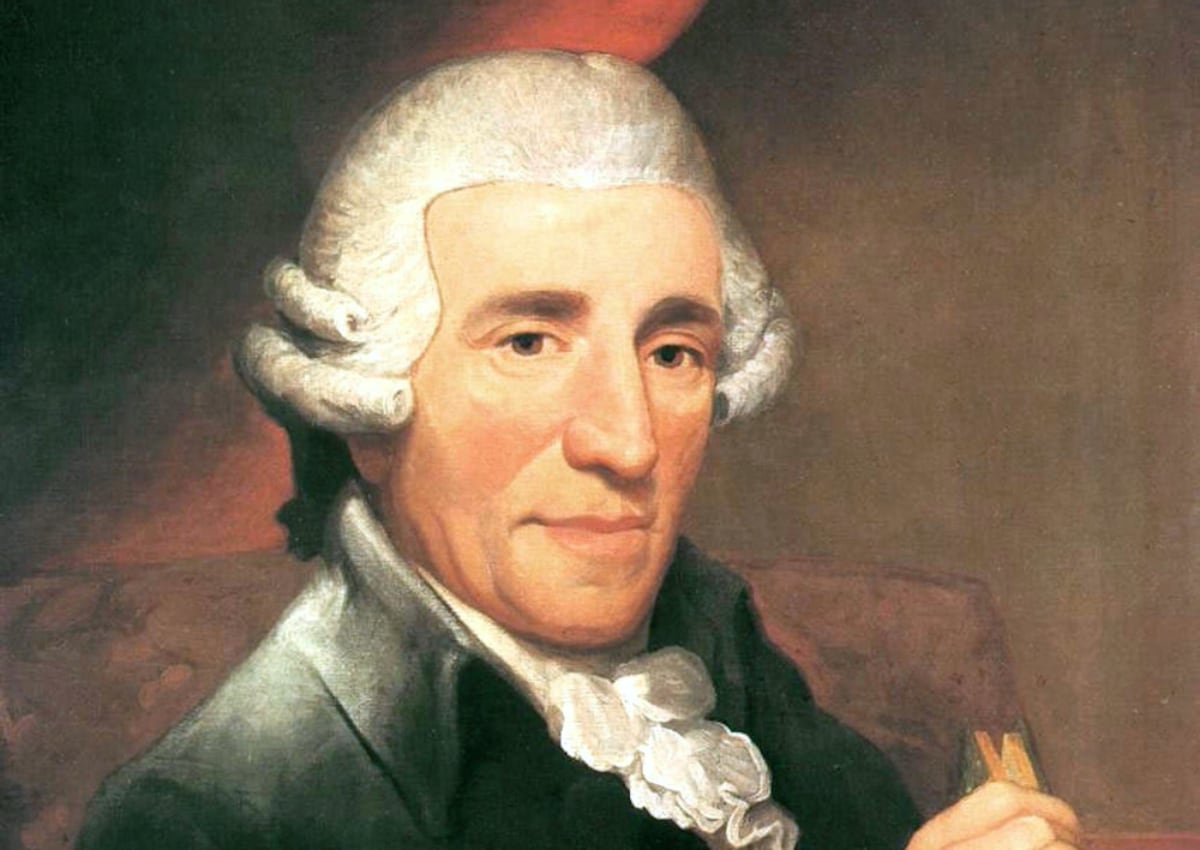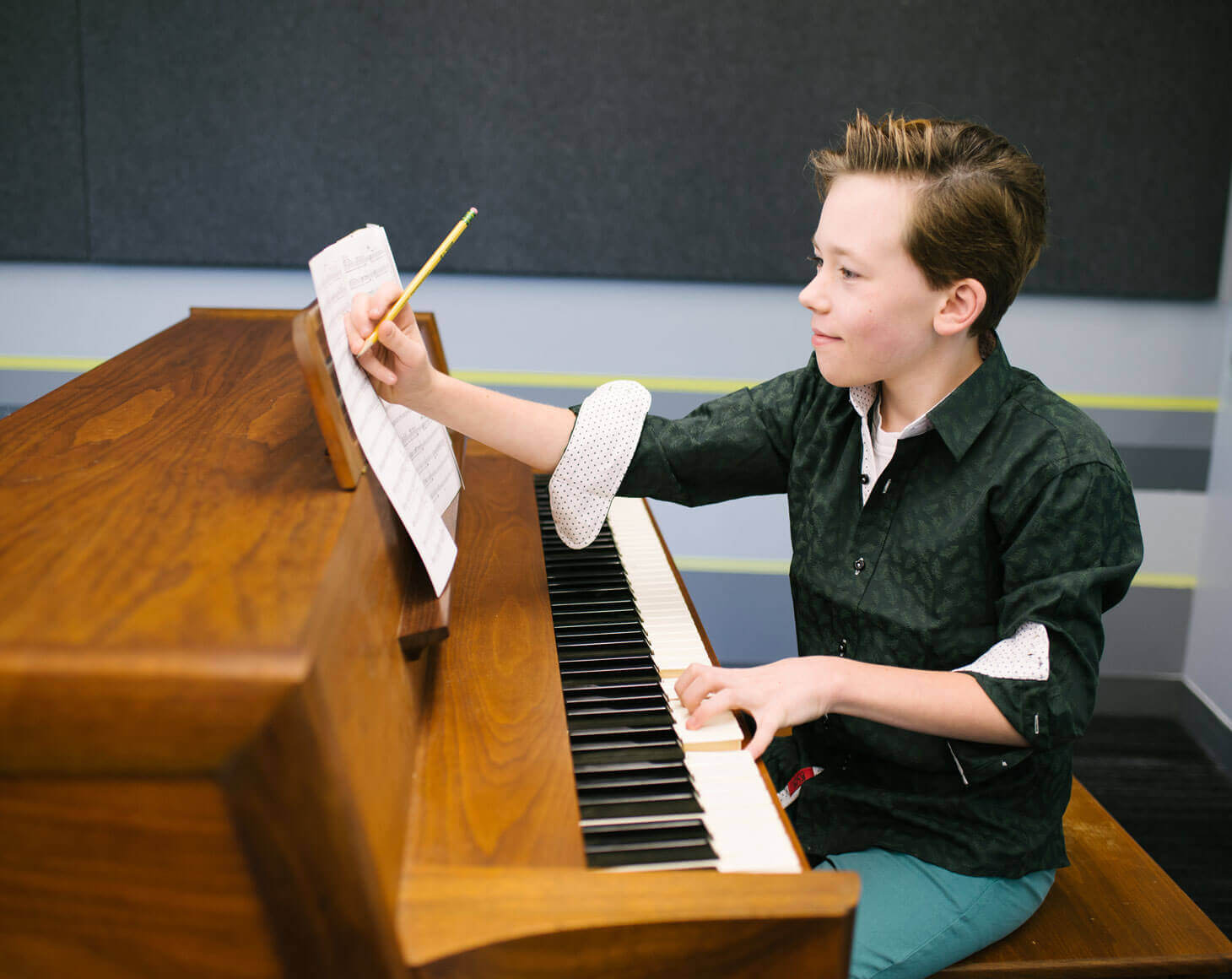Home>Events & Info>Music History>Why Is Wagner So Important To Music History
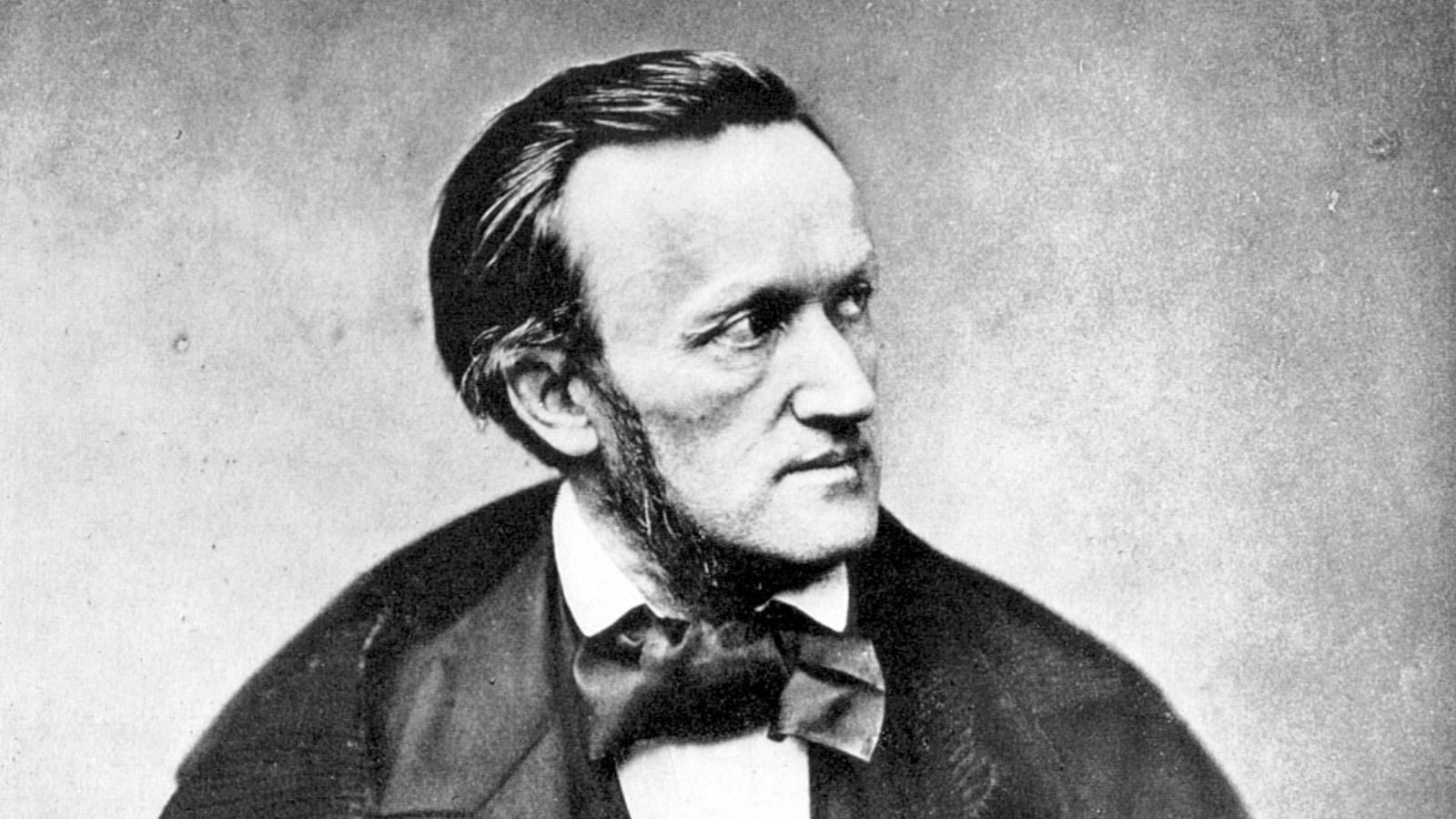

Music History
Why Is Wagner So Important To Music History
Published: December 28, 2023
Discover why Richard Wagner is crucial to the history of music and his impact on the development of music history.
(Many of the links in this article redirect to a specific reviewed product. Your purchase of these products through affiliate links helps to generate commission for AudioLover.com, at no extra cost. Learn more)
Table of Contents
Introduction
Richard Wagner, a German composer, is widely regarded as one of the most important figures in music history. His innovative compositions, groundbreaking theories, and controversial personality have left an indelible mark on the world of music. Wagner’s influence extends far beyond the realm of opera, as his ideas and techniques have shaped the course of Western classical music.
Born on May 22, 1813, in Leipzig, Germany, Wagner showed a prodigious talent for music from an early age. He received a thorough musical education and was influenced by the works of Beethoven, Mozart, and Weber, as well as the writings of philosopher Friedrich Nietzsche. These early influences would lay the foundation for Wagner’s unique musical style.
Wagner’s career as a composer can be divided into two distinct phases: the early Romantic period and the later transition to his own innovative style. In the early years, Wagner composed primarily operas in the Romantic tradition, heavily influenced by Weber and Italian opera. However, he soon began to experiment with his own musical language, breaking away from traditional forms and structures.
One of Wagner’s most significant contributions to music history is his concept of the “total work of art” or “Gesamtkunstwerk.” This concept aimed to unify all aspects of the opera: music, libretto, staging, and set design, to create a fully immersive and transformative experience. Wagner believed that the arts should come together to communicate a profound emotional and spiritual message.
Wagner’s groundbreaking theories and ideas had a profound impact on future composers, particularly in the realm of opera. His concept of leitmotifs, or recurring musical themes associated with characters or ideas, would go on to influence composers like Gustav Mahler and Richard Strauss. In addition, his innovative use of orchestration and harmonic language pushed the boundaries of traditional music composition.
Despite his undeniable contributions to music, Wagner’s life and work were not without controversy. His fervent nationalism and anti-Semitic views have cast a shadow over his legacy. While it is important to confront and critique these aspects of his persona, it is also essential to recognize the undeniable impact he had on music history.
In this article, we will delve into the life and influences of Wagner, explore his unique musical style, and examine his contributions to opera. We will also discuss his theories and ideas, as well as the controversies and criticisms surrounding his legacy. Finally, we will reflect on Wagner’s lasting impact on the world of music and why he remains such an important figure in music history.
Early Life and Influences
Richard Wagner was born on May 22, 1813, in Leipzig, Germany. He grew up in a middle-class family with a deep appreciation for the arts. His father, Carl Friedrich Wagner, was a police actuary and a minor literary figure, while his mother, Johanna Rosine, was an actress.
From a young age, Wagner displayed an exceptional musical talent. He received piano lessons as a child and quickly excelled in his musical studies. At the age of 15, he began composing his own music, showing a keen interest in opera.
Wagner’s early influences can be traced back to his exposure to the works of Ludwig van Beethoven, Wolfgang Amadeus Mozart, and Carl Maria von Weber. He was particularly drawn to the dramatic power and emotional depth of Beethoven’s compositions, which left a lasting impression on his musical development. Mozart’s operas also had a significant impact on Wagner, with their intricate melodies and dynamic storytelling.
Another major influence on Wagner’s musical development was his acquaintance with the works of philosopher Friedrich Nietzsche. Nietzsche’s emphasis on the importance of art in expressing deep human emotions and the profound impact it can have on society resonated with Wagner’s own artistic vision. Consequently, the two developed a close friendship and intellectual connection.
Wagner’s early career was also shaped by his years spent in Dresden, where he worked as a conductor and composer. During this time, he became acquainted with the operas of Giacomo Meyerbeer and Richard Strauss, whose grandiose and melodramatic style would influence Wagner’s own compositions.
While Wagner’s early works were mostly in the tradition of Romantic opera, he began to experiment with his own musical style as he grew older. He sought to break away from the conventions of traditional opera and develop a sound that was uniquely his own. This desire for innovation and originality would become a defining characteristic of his later compositions.
Overall, Wagner’s early life and influences laid the groundwork for his future musical endeavors. His exposure to the works of great composers and his own inclination for pushing artistic boundaries set the stage for the development of his unique musical style and groundbreaking theories.
Development of Unique Musical Style
Richard Wagner’s desire to break free from traditional opera conventions led him to develop a unique musical style that would revolutionize the art form. He sought to create a seamless fusion of music, drama, and poetry, striving to achieve a deep emotional impact on the audience.
One of the key elements of Wagner’s musical style was his use of leitmotifs, or recurring musical themes. These motifs were associated with specific characters, ideas, or emotions and served as a powerful tool for storytelling. By using leitmotifs, Wagner was able to create a rich, interconnected web of musical themes that enhanced the dramatic impact of his operas.
Wagner’s approach to orchestration was also groundbreaking. He expanded the traditional orchestral palette, introducing new instruments and exploring unique combinations to achieve specific emotional effects. The richness and complexity of his orchestral writing allowed for a greater sense of drama and intensity in his works.
In addition to his innovative use of leitmotifs and orchestration, Wagner developed a new harmonic language that challenged the traditional tonal system. He employed chromaticism and unconventional chord progressions to create a sense of tension and emotional depth. This harmonic experimentation added an extra layer of complexity to his compositions and contributed to their unique and evocative character.
Wagner’s approach to form was also distinct. He sought to break away from traditional operatic structures, such as the aria and recitative, and instead aimed for a continuous flow of music, with seamless transitions between scenes and musical numbers. This continuity allowed for a more immersive and seamless experience for audiences, reinforcing the concept of the “total work of art.”
Furthermore, Wagner’s use of the orchestra as a protagonist in his operas was a departure from the conventional role of the orchestra as a supportive element. The orchestra took on a more active role, driving the narrative and conveying the emotions of the characters. This heightened the emotional impact of Wagner’s works and added an extra layer of complexity and drama to the overall musical experience.
Overall, Wagner’s development of a unique musical style incorporated elements such as leitmotifs, innovative orchestration, unconventional harmonies, and non-traditional forms. These innovations transformed the opera genre and laid the foundation for the future development of classical music. Wagner’s influence on subsequent composers, particularly in the realm of opera, can still be felt to this day.
Contributions to Opera
Richard Wagner’s contributions to the world of opera are immeasurable. His innovative ideas and groundbreaking techniques have forever altered the landscape of this art form. Wagner’s concept of the “total work of art” revolutionized opera, and his operatic works continue to be revered and performed around the world.
One of Wagner’s most significant contributions to opera is his concept of the “Gesamtkunstwerk,” or the total work of art. He believed that all aspects of the opera, including the music, libretto, staging, and set design, should come together harmoniously to create a unified and immersive experience for the audience. This holistic approach to opera transformed it from mere entertainment to a transformative and transcendent art form.
Wagner also introduced the concept of leitmotifs, which are recurring musical themes associated with specific characters, ideas, or emotions. These leitmotifs not only served as a narrative device but also enhanced the emotional impact of the operas. The use of leitmotifs allowed for a deeper connection between the audience and the characters, and it provided a unified musical language that tied the entire opera together.
Another notable contribution of Wagner to opera is his emphasis on the role of the orchestra. He saw the orchestra as an integral part of the narrative, giving it a voice of its own and using it to convey the emotions and moods of the characters. Wagner’s orchestration techniques were groundbreaking, utilizing a wide range of instruments and innovative combinations to create a rich sonic tapestry that added depth and complexity to his works.
Wagner also challenged traditional operatic forms and structures. He sought a continuous flow of music, with seamless transitions between scenes and musical numbers, eliminating the traditional divisions of aria and recitative. This approach allowed for a more natural and fluid progression of the story and emphasized the unity of music, drama, and poetry.
Furthermore, Wagner’s exploration of intense and controversial themes in his operas pushed the boundaries of what was deemed acceptable in opera. Works like “Tristan und Isolde” and “Parsifal” delved into themes of love, betrayal, and redemption, challenging societal norms and conventions. Through his exploration of these themes, Wagner opened new possibilities for opera as a medium for tackling complex and profound human experiences.
Wagner’s contributions to opera have had a lasting impact on the genre. His concepts and techniques have been embraced by countless composers who followed in his footsteps. The idea of the total work of art and the use of leitmotifs can be seen in the works of composers such as Gustav Mahler, Richard Strauss, and even in film scores. Wagner’s influence continues to shape the way opera is conceived and performed, cementing his status as a visionary and trailblazer in the history of this art form.
Wagner’s Theories and Ideas
Richard Wagner was not only a brilliant composer but also a visionary thinker who developed a range of theories and ideas that transformed the landscape of music. His philosophies and concepts continue to be widely studied and debated, offering profound insights into the nature of art and its relationship to society.
One of Wagner’s central theories was the concept of Gesamtkunstwerk, or the total work of art. He envisioned opera as a synthesis of all artistic elements, including music, text, staging, set design, and even costume. For Wagner, the goal was to create an immersive and transformative experience for the audience, where all artistic elements seamlessly integrated to convey a unified message. Inspired by Greek drama and medieval spectacles, Wagner believed that by uniting different artistic mediums, opera could become the highest form of artistic expression.
Another key aspect of Wagner’s theories was his belief in the power of myth and symbolism. He saw opera as a vehicle for expressing profound human emotions and universal truths. Wagner drew extensively from ancient myths, legends, and folklore, infusing his operas with symbolic meaning and depth. His use of mythical themes allowed him to explore timeless human experiences and emotions in a way that resonated deeply with audiences.
Wagner’s theories also extended to the role of music in opera. He believed that music should serve as the driving force in conveying the emotional and dramatic content of the opera. Wagner rejected the notion of music as mere ornamentation or accompaniment to the text, instead elevating it to a position of prominence. Through his innovative use of leitmotifs, Wagner ensured that each musical theme represented a specific character, emotion, or idea, effectively heightening the emotional impact of his operas.
Furthermore, Wagner’s theories extended to the concept of nationalistic art, a concept he referred to as “art and revolution.” He believed that art should reflect and inspire the collective spirit of a nation, and that it had the power to spark social and political change. Wagner’s own political beliefs were strongly rooted in German nationalism, and his operas often expressed themes of heroism and national identity. While his ideas on nationalism remain controversial, they undeniably contributed to the notion of art as a reflection of societal and political ideals.
Wagner’s theories and ideas were revolutionary for his time and continue to inspire and challenge artists and intellectuals today. His concept of the total work of art has influenced countless creators across various artistic disciplines, and his belief in the transcendent power of music resonates with musicians and audiences alike. Wagner’s theories offer a profound understanding of the connection between art, mythology, and the human experience, cementing his status as a highly influential figure in the history of music and philosophy.
Influence on Future Composers
The impact of Richard Wagner’s innovative ideas and compositions extends far beyond his own lifetime. His groundbreaking techniques and visionary thinking have influenced numerous composers in the years following his death, shaping the course of Western classical music.
One of the most significant ways in which Wagner influenced future composers was through his concept of leitmotifs. The use of recurring musical themes associated with specific characters or ideas became a defining characteristic of his operas. This technique had a profound impact on composers such as Gustav Mahler and Richard Strauss, who incorporated leitmotifs into their own works to create a unified and narrative-driven musical experience. Wagner’s approach to leitmotifs revolutionized the way composers thought about the relationship between music and storytelling.
Wagner’s exploration of orchestration also left a lasting impact on future composers. His innovative use of instruments and his attention to the emotional impact of different timbres inspired composers like Claude Debussy, who experimented with new sound combinations and textures. The lush and expressive orchestration evident in Wagner’s works was a departure from the traditional approach, encouraging composers to explore the full potential of the orchestra as a means of expression.
In addition to his compositional techniques, Wagner’s ideas about the role of music in opera influenced generations of composers. His belief in music as the primary vehicle for conveying emotion and story inspired composers like Igor Stravinsky and Arnold Schoenberg to break away from traditional tonal structures and explore new avenues of expression. These composers pushed the boundaries of classical music, embracing dissonance and unconventional harmonies to create powerful and evocative compositions.
Furthermore, Wagner’s concept of the total work of art, which aimed to unify all aspects of the opera, deeply influenced composers who sought to create multidimensional artistic experiences. This idea resonated with artists working in other mediums as well, leading to the emergence of interdisciplinary works across music, theater, and visual arts. The influence of Wagner’s total work of art can be seen in the works of artists such as Richard Wagner later became a new source of inspiration for composers who sought to push artistic boundaries and challenge traditional conventions.
It is important to note that while Wagner’s influence on future composers is undeniable, his legacy is not without controversy. The association of his ideas with German nationalism and his personal ideologies have led to ongoing debates about the separation of art and artist. Nevertheless, it cannot be denied that Wagner’s impact on music history is profound, as his innovations and ideas continue to resonate with composers and audiences alike.
Overall, Richard Wagner’s influence on future composers cannot be overstated. His concepts of leitmotifs, orchestration, the total work of art, and his emphasis on music as a means of storytelling and emotional expression have left an indelible mark on the world of classical music. Wagner’s ideas and innovations continue to inspire composers to push the boundaries of their art, creating works that challenge and captivate audiences in new and exciting ways.
Controversies and Criticisms
While Richard Wagner’s contributions to music history are widely recognized and celebrated, his life and work were not without controversy and criticisms. The composer’s personal beliefs, nationalist ideologies, and anti-Semitic views have generated significant debate and continue to cast a shadow over his legacy.
One of the most prominent controversies surrounding Wagner is his association with German nationalism. Wagner held fervent beliefs in the superiority of German culture and the need for a unified German state. His works often portrayed heroic German figures and themes of national identity. While some view this as a reflection of the political climate of the time, others criticize Wagner for promoting an exclusionary and divisive brand of nationalism.
Another contentious aspect of Wagner’s persona is his anti-Semitic views. In his published writings, most notably in his essay “Judaism in Music,” Wagner expressed discriminatory and derogatory views towards Jewish people. His writings have been interpreted as anti-Semitic propaganda, portraying Jewish musicians as culturally inferior and detrimental to the purity of German music. This aspect of Wagner’s beliefs has understandably caused significant controversy and sparked discussions on the relationship between an artist’s work and their personal beliefs.
Wagner’s associations with prominent anti-Semitic figures, such as Houston Stewart Chamberlain, and Nazi leaders in later years further complicated the perception of his character and artistic legacy. The posthumous appropriation of his music by the Nazi regime and Adolf Hitler’s admiration for his works further fueled the debate surrounding Wagner’s involvement with anti-Semitism.
Furthermore, critics have questioned the length and scale of Wagner’s operas. Some argue that his works, such as the four-opera cycle “Der Ring des Nibelungen,” can be overly long and require significant endurance from both performers and audiences. The complexity and demands of his compositions have been criticized as excessive and self-indulgent.
Despite these controversies and criticisms, it is important to consider Wagner’s work in the historical context of his time and to separate the artist from his creations. Wagner’s influence on music and opera cannot be ignored, and his innovative techniques continue to shape the musical landscape. It is essential to engage in critical discussions of his problematic views and to acknowledge the impact they may have had on his work and its interpretation.
Today, performances of Wagner’s works often prompt discussions about both the artistic merits of his compositions and the ethical considerations surrounding his personal beliefs. The ongoing debates and controversies surrounding Wagner’s legacy serve as a reminder of the complexities inherent in separating an artist’s work from their personal ideology.
Ultimately, the controversies and criticisms surrounding Richard Wagner highlight the necessity of critically engaging with his work and actively questioning the historical and social context in which it was created. By acknowledging and confronting these controversies, we can foster a deeper understanding of Wagner’s impact on music history and critically assess the legacy of one of classical music’s most influential figures.
Legacy and Impact on Music History
The legacy of Richard Wagner in the history of music is profound and far-reaching. Despite the controversies and criticisms surrounding his personal beliefs, his contributions to the development of opera and his innovative musical techniques continue to shape the music world.
Wagner’s most significant contribution is his concept of the total work of art, known as Gesamtkunstwerk. This concept revolutionized opera by seeking to unify all aspects of the art form, including music, text, staging, and set design. Wagner’s vision laid the foundation for immersive and multidimensional theatrical experiences, inspiring future composers and directors to consider the holistic nature of opera.
His use of leitmotifs, recurring musical themes associated with characters or ideas, and his exploration of orchestration techniques were groundbreaking. Wagner’s influence can be seen in the works of countless composers who followed him, including Gustav Mahler, Richard Strauss, and Claude Debussy. Their adoption of leitmotifs and their innovative approaches to orchestration were directly influenced by Wagner’s artistic vision.
Wagner’s music also pushed the boundaries of traditional tonality and musical form. His chromatic harmonies and unconventional chord progressions foreshadowed developments in 20th-century music, such as the atonal and serialist movements. His influence can be seen particularly in the work of composers like Arnold Schoenberg and Alban Berg, who sought new avenues of expression through the exploration of dissonance and unconventional harmonic language.
Beyond his impact on music composition, Wagner’s ideas about the relationship between art and society were ahead of his time. His belief in the power of art to inspire social and political change paved the way for the notion of art as a force of revolution and collective expression. His ideals can be seen in later artistic movements, such as the Symbolists and the Futurists, who sought to use art as a means of challenging societal norms and initiating cultural transformation.
Wagner’s influence also extends to the realm of theater and performance. His emphasis on the integration of music, drama, and poetry compelled theater directors to rethink their approach to staging and set design. Wagner’s insistence on a cohesive and immersive theatrical experience has had a lasting impact on theater production around the world, leading to the emergence of elaborate set designs, innovative staging techniques, and interdisciplinary collaborations.
Despite the controversies surrounding his personal beliefs, it is undeniable that Wagner’s impact on music history is profound. His visionary ideas, innovative techniques, and groundbreaking compositions continue to inspire and challenge musicians, composers, and performers to this day. Wagner’s legacy is a testament to the power of artistic innovation and the enduring influence that one individual can have on an entire art form.
As we continue to engage with Wagner’s works, it is important to critically examine and confront the complexities of his beliefs and their implications. By acknowledging the controversies surrounding Wagner, we can foster a deeper understanding of his contributions to music history and continue to explore the enduring relevance and impact of his artistic legacy.
Conclusion
Richard Wagner’s impact on music history is undeniable. His innovative ideas, revolutionary techniques, and controversial personal beliefs have shaped the course of Western classical music. Despite the controversies and criticisms surrounding his nationalism and anti-Semitism, Wagner’s contributions to opera, his unique musical style, and his visionary theories have left an indelible mark on the world of music.
Wagner’s concept of the total work of art, the integration of music, drama, and poetry, transformed opera into a captivating and immersive experience. His use of leitmotifs, orchestration techniques, and his exploration of unconventional harmonies pushed the boundaries of traditional composition. Wagner’s influence can be seen in the works of composers who followed him, as well as in the development of theater and performance practices.
However, it is crucial to approach Wagner’s legacy with critical scrutiny. His association with German nationalism and anti-Semitic views cannot be ignored or dismissed. Understanding and grappling with these aspects of his persona is essential to engaging thoughtfully with his work and its impact.
Ultimately, Wagner’s lasting legacy lies in his ability to inspire and challenge. His work continues to be performed and studied, provoking discussions about the role of art, the complexities of an artist’s beliefs, and the power of music to transcend boundaries.
The enduring influence of Wagner’s ideas and compositions can be seen in the works of countless composers and the evolving landscape of classical music. While we must acknowledge the problematic aspects of his life and persona, we cannot discount the profound impact he has had on the development of opera, the exploration of new musical techniques, and the intertwining of art forms.
Richard Wagner’s contributions to music history compel us to confront the complexities of artistic legacies and to engage with music in a way that is both critical and appreciative. As we continue to study and perform his works, it is essential to grapple with the tensions between the artistic genius and the flawed individual, recognizing that both aspects contribute to the richness of his legacy.
While Wagner’s place in music history is not without controversy, his influence is undeniable. His visionary ideas, groundbreaking techniques, and enduring compositions continue to inspire and captivate audiences, ensuring that his name will forever be remembered as a key figure in the evolution of classical music.




